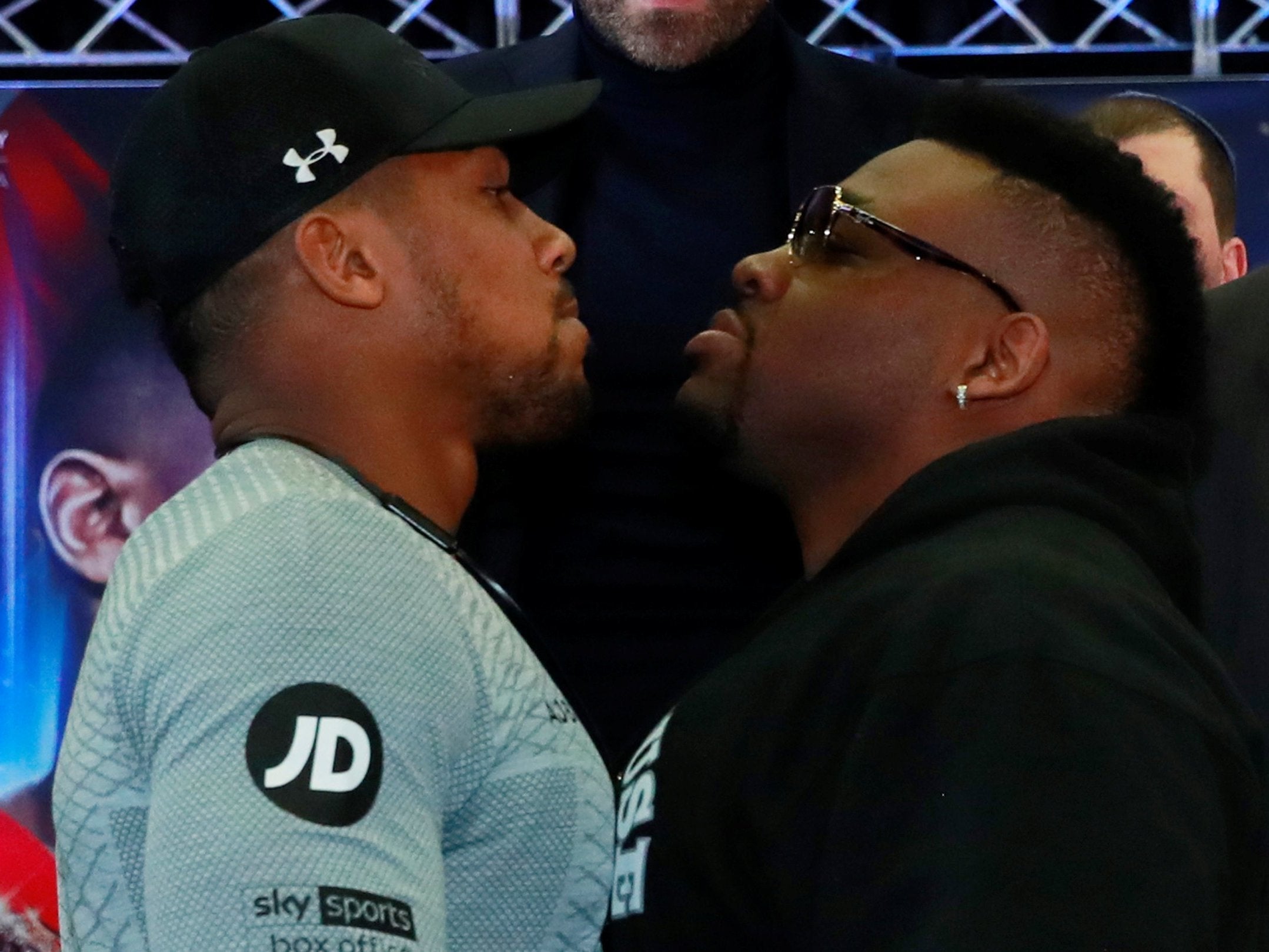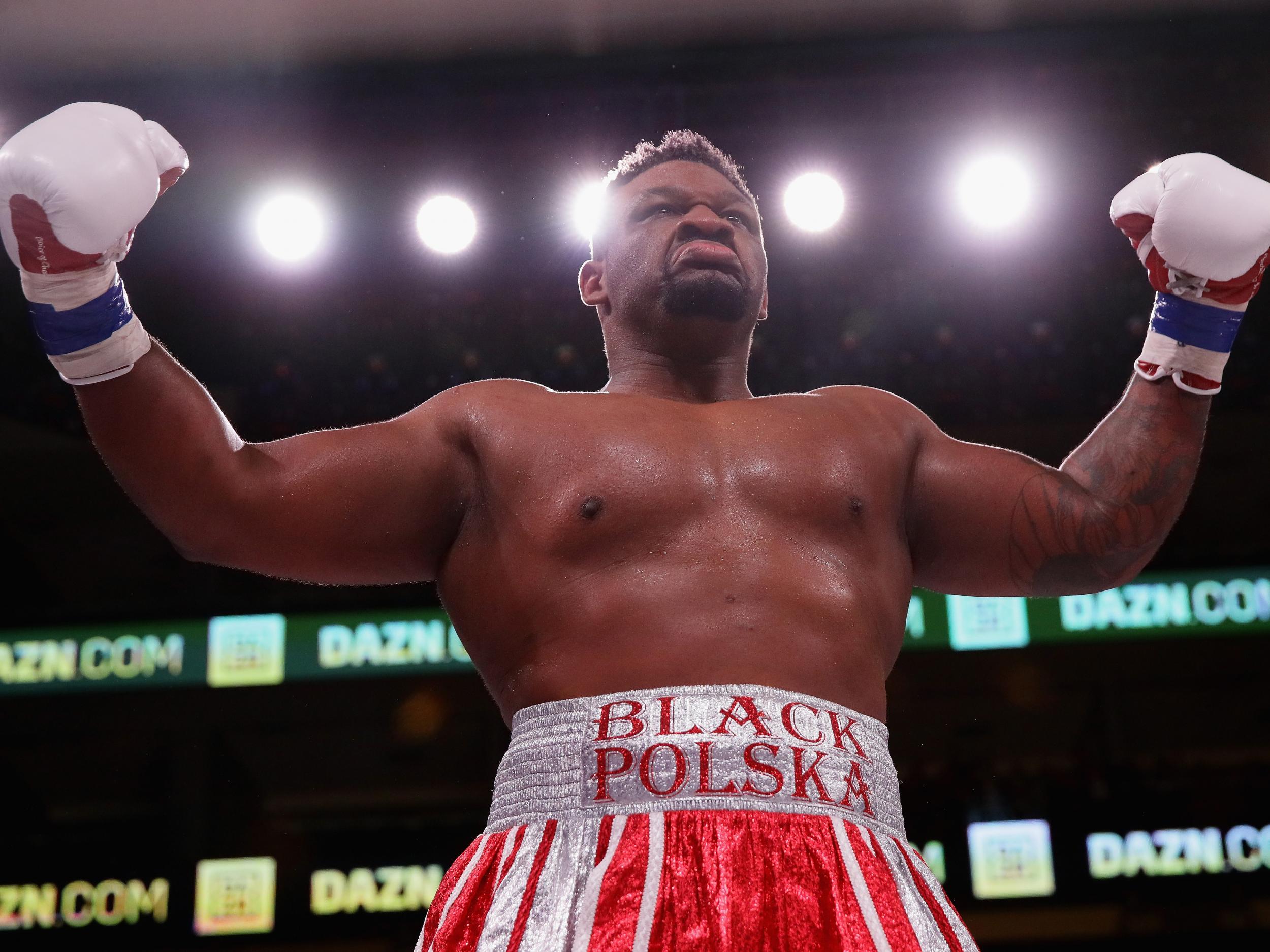Jarrell Miller: What is GW1516, the drug found in heavyweight boxer’s test that could cancel Anthony Joshua fight?
American heavyweight Miller has returned an adverse drugs test and is set to lose his title fight with Joshua

Your support helps us to tell the story
This election is still a dead heat, according to most polls. In a fight with such wafer-thin margins, we need reporters on the ground talking to the people Trump and Harris are courting. Your support allows us to keep sending journalists to the story.
The Independent is trusted by 27 million Americans from across the entire political spectrum every month. Unlike many other quality news outlets, we choose not to lock you out of our reporting and analysis with paywalls. But quality journalism must still be paid for.
Help us keep bring these critical stories to light. Your support makes all the difference.
Anthony Joshua’s next heavyweight title defence is under major threat after his opponent Jarrell Miller allegedly failed a drugs test, after the banned substance GW1516 was found in a sample given last month.
Miller has regularly accused Joshua of using performance-enhancing drugs during his career while the two have been on their promotional world tour, but has failed a Voluntary Anti-Doping Association (Vada) test submitted on 20 March.
Vada have informed both camps of the adverse finding, and although Joshua and Miller are maintaining their training programmes for the 1 June bout as scheduled in the hope that it still goes ahead as planned.
But while Miller seeks clarification from Vada over the adverse finding, the likelihood is that Joshua and promoter Eddie Hearn will be on the lookout for a new opponent for the bout at New York’s Madison Square Garden.
If Miller chooses to have the finding fully investigated, there is unlikely to be enough time between now and the cut-off for the fight to clear his name, meaning that not only would he be unable to fight while under investigation, but Joshua will have no time left to find a new opponent and the date will have to be scrapped completely. With the likes of Dillian Whyte, Joseph Parker and Luis Ortiz all being thrown into the hat as potential replacements, Joshua does have alternative options.
But what about Miller? The American faces a difficult battle to clear his name if the failed drugs test is confirmed, and given that early reports indicate the trace of the banned substance GW1516, there is also the concern over what he may have taken – knowingly or otherwise.
What is GW1516?
The substance is also known as GW501516, Cardarine and Endurobol and is a Peroxisome proliferator-activated receptor beta (PPAR) agonist, which is simple terms can increase aerobic power and endurance.
It was developed by Ligand Pharmaceuticals and GlaxoSmithKline in the 1990s and used to treat diabetes, obesity and cardiovascular diseases, before being discontinued in 2007.
What are its performance-enhancing qualities?
GW1516 forces skeletal muscle to use fat as an energy source as opposed to carbohydrates, resulting in it being used often as a weight-loss tool for athletes competing in a sport where shedding fat is a benefit – such as boxing. It also has benefits towards cardiovascular performance which has seen it utilised by endurance athletes.

In contrast to a stimulant that spikes the heart rate but can lead to faster exhaustion, GW1516 enables better performance for less exertion, giving an athlete much better performance results.
What are the risks?
The risks very much outweigh the rewards. Trials of the drug led to the rapid development of cancer cells within mice, and it has since been placed on the Therapeutic Goods Administration’s Poisons Standard under Schedule 10, which is for substances that pose such a health risk that the sale, supply and use is prohibited.

When was it banned?
Following a spike in its usage at the 2008 Olympic Games, GW1516 was banned by nearly every anti-doping commission. Multiple positive tests in 2013 led to the World Anti-Doping Agency (Wada) issued a health risk warning on the substance, but it has not stopped its use and the number of positive tests rose from fewer than six in 2016 to 31 in 2017.
Join our commenting forum
Join thought-provoking conversations, follow other Independent readers and see their replies
Comments